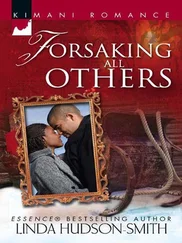“But nothing at all happened,” she said, and sighed. “We’ll have to tell them it didn’t work tomorrow. Come on, are we going to walk home or wait for a bus?”
It had worked, though. The next day, the headline in the Aberdare Leader was “Phurnacite Plant Closing: Thousands of Jobs Lost.”
I’m telling that part first because it’s compact and concise and it makes sense, and a lot of the rest of this isn’t that simple.
Think of this as a memoir. Think of it as one of those memoirs that’s later discredited to everyone’s horror because the writer lied and is revealed to be a different colour, gender, class and creed from the way they’d made everybody think. I have the opposite problem. I have to keep fighting to stop making myself sound more normal. Fiction’s nice. Fiction lets you select and simplify. This isn’t a nice story, and this isn’t an easy story. But it is a story about fairies, so feel free to think of it as a fairy story. It’s not like you’d believe it anyway.
Very Private.
This is NOT a vocab book!
Et haec, olim, meminisse iuvabit!
—Virgil,
The Aeneid
Wednesday 5th September 1979
“And how nice it’ll be for you,” they said, “to be in the countryside. After coming from, well, such an industrialised place. The school’s right out in the country, there’ll be cows and grass and healthy air.” They want to get rid of me. Sending me off to boarding school would do nicely, that way they can keep on pretending I didn’t exist at all. They never looked right at me. They looked past me, or they sort of squinted at me. I wasn’t the sort of relative they’d have put in for if they’d had any choice. He might have been looking, I don’t know. I can’t look straight at him. I kept darting little sideways glances at him, taking him in, his beard, the colour of his hair. Did he look like me? I couldn’t tell.
There were three of them, his older sisters. I’d seen a photograph of them, much younger but their faces exactly the same, all dressed as bridesmaids and my Auntie Teg next to them looking as brown as a berry. My mother had been in the picture too, in her horrid pink wedding dress—pink because it was December and we were born the June after and she did have some shame—but he hadn’t been. She’d torn him off. She’d ripped or cut or burned him out of all the wedding pictures after he’d run off. I’d never seen a picture of him, not one. In L. M. Montgomery’s Jane of Lantern Hill , a girl whose parents were divorced recognised a picture of her father in the paper without knowing it. After reading that we’d looked at some pictures, but they never did anything for us. To be honest, most of the time we hadn’t thought about him much.
Even standing in his house I was almost surprised to find him real, him and his three bossy half-sisters who asked me to call them Aunt. “Not aunty,” they said. “Aunty’s common.” So I called them Aunt. Their names are Anthea and Dorothy and Frederica, I know, as I know a lot of things, though some of them are lies. I can’t trust anything my mother told me, not unless it’s checked. Some things books can’t check, though. It’s no use my knowing their names anyway, because I can’t tell them apart, so I don’t call them aunt anything, just Aunt. They call me “Morwenna,” very formally.
“Arlinghurst is one of the best girls’ schools in the country,” one of them said.
“We all went there,” another chimed in.
“We had the jolliest time,” the third finished. Spreading what they’re saying out like that seems to be one of their habits.
I just stood there in front of the cold fireplace, looking up under my fringe and leaning on my cane. That was something else they didn’t want to see. I saw pity in one of their faces when I first got out of the car. I hate that. I’d have liked to sit down, but I wasn’t going to say so. I can stand up much better now. I will get better, whatever the doctors said. I want to run so much sometimes my body aches with longing more than the pain from my leg.
I turned around to distract myself and looked at the fireplace. It was marble, very elaborate, and there were branches of copper birch leaves arranged in it. Everything was very clean, but not very comfortable. “So we’ll get your uniforms right away, today in Shrewsbury, and take you down there tomorrow,” they said. Tomorrow. They really can’t wait to get rid of me, with my ugly Welsh accent and my limp and worst of all my inconvenient existence. I don’t want to be here either. The problem is that I don’t have anywhere else to be. They won’t let you live alone until you’re sixteen; I found that out in the Home. And he is my father even if I’d never seen him before. There is a sense in which these women really are my aunts. That makes me feel lonelier and further away from home than I ever had. I miss my real family, who have let me down.
The rest of the day was shopping, with all three aunts, but without him. I didn’t know if I was glad or sorry about that. The Arlinghurst uniform had to come from special shops, just like my grammar school uniform did. We’d been so proud when we passed the Eleven plus. The cream of the Valleys, they said we were. Now that’s all gone, and instead they’re forcing on me this posh boarding school with its strange requirements. One of the aunts had a list, and we bought everything on it. They’re certainly not hesitating about spending money. I’ve never had this much spent on me. Pity it’s all so horrible. Lots of it is special games kits. I didn’t say I won’t be using them any time soon, or maybe ever. I keep turning away from that thought. All my childhood we had run. We’d won races. Most of the school races we’d been racing each other, leaving the rest of the field far behind. Grampar had talked about the Olympics, just dreaming, but he had mentioned it. There had never been twins at the Olympics, he said.
When it came to shoes, there was a problem. I let them buy hockey shoes and running shoes and daps, for gym, because either I can use them or not. But when it comes to the uniform shoes, for every day, I had to stop them. “I have a special shoe,” I said, not looking at them. “It has a special sole. They have to be made, at the orthopaedic. I can’t just buy them.”
The shop assistant confirmed that we can’t just buy them in the school pattern. She held up a school shoe. It was ugly, and not very different from the clumpy shoes I have. “Couldn’t you walk in these?” one of the aunts asked.
I took the school shoe in my hands and looked at it. “No,” I said, turning it over. “There’s a heel, look.” It was inarguable, though the school probably thinks the heel is the minimum any self-respecting teenage girl will wear.
They didn’t mean to totally humiliate me as they clucked over the shoes and me and my built-up sole. I had to remind myself of that as I stood there like a rock, a little painful half-smile on my face. They wanted to ask what’s wrong with my leg, but I outfaced them and they didn’t quite dare. This, and seeing it, cheered me up a little. They gave in on the shoes, and said the school would just have to understand. “It’s not as if my shoes were red and glamorous,” I said.
That was a mistake, because then they all stared at my shoes. They are cripple shoes. I had a choice of one pattern of ladies’ cripple shoes, black or brown, and they are black. My cane’s wooden. It used to belong to Grampar, who is still alive, who is in hospital, who is trying to get better. If he gets better, I might be able to go home. It’s not likely, considering everything, but it’s all the hope I have. I have my wooden key ring dangling from the zip of my cardigan. It’s a slice of tree, with bark, it came from Pembrokeshire. I’ve had it since before. I touched it, to touch wood, and I saw them looking. I saw what they saw, a funny little spiky crippled teenager with a piece of tatty wood. But what they ought to see is two glowing confident children. I know what happened, but they don’t, and they’d never understand it.
Читать дальше


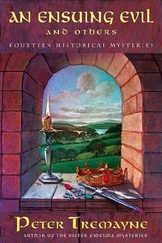
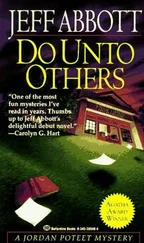
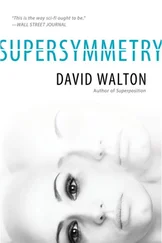

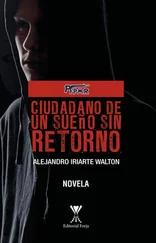


![Brian Thompson - A Monkey Among Crocodiles - The Life, Loves and Lawsuits of Mrs Georgina Weldon – a disastrous Victorian [Text only]](/books/704922/brian-thompson-a-monkey-among-crocodiles-the-life-thumb.webp)
